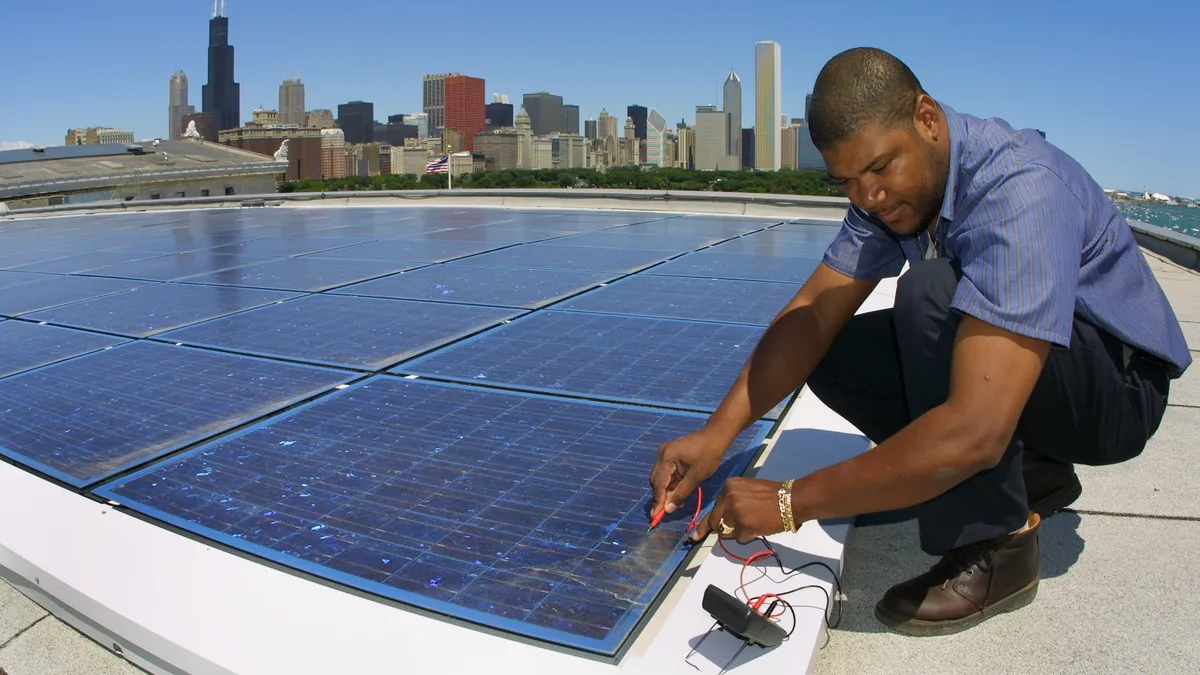Illinois Commerce Commission staff on Wednesday released a draft Renewable Energy Access Plan, or REAP, starting a 120-day public review and comment period.
According to the commission, “the REAP is a comprehensive, actionable plan for supporting an equitable, reliable, and affordable transition to decarbonization and meeting Illinois’ policy requirements for a clean electricity system.”
The plan is required by the Climate and Equitable Jobs Act, or CEJA, which was signed by Gov. JB Pritzker, D, last September and set a target of 100% clean energy in Illinois by 2050.
Under the law, the commission must open an investigation by Dec. 31 to develop and adopt a renewable energy access plan. The draft released Wednesday was the first one; a second draft is expected later this year.
“The transition to 100% clean energy requires tremendous and active collaboration between state agencies, regional transmission organizations, consumer advocate groups, and industry experts to get the job done right. We want to hear from all interested stakeholders and encourage all to review the first draft of the REAP and provide comment for consideration into the second draft to be finalized in the fall,” ICC Executive Director Michael Merchant said in a statement.
The plan will help clarify and quantify policy requirements, “such as determining the scale of clean energy resources and reforms needed over time to implement CEJA,” the commission said.
Among other elements, the plan “must prioritize the closure of fossil-fueled electric generating units near environmental justice communities and identify attractive renewable areas for resource development, incorporating the importance of equity in land use,” the commission said.
The plan must also focus on optimizing the existing transmission system as well as proactive planning of new transmission.
Another priority is enhancing RTO markets to reduce costs and emissions, create jobs, and ensure reliability during the energy transition.
Both PJM and MISO “will need to substantially enhance their existing markets and expand their activities to effectively support implementation of Illinois’ clean electricity policy,” the draft plan said.
“Current markets, if left unaltered, will not produce the most cost-effective and reliable clean energy transition, and may in some cases produce economic incentives that conflict with Illinois policy mandates,” the plan continued.
The second draft of the plan “will include a revised and refined list of required RTO market reforms based on input and analysis provided by MISO, PJM, and other stakeholders,” the commission said.














